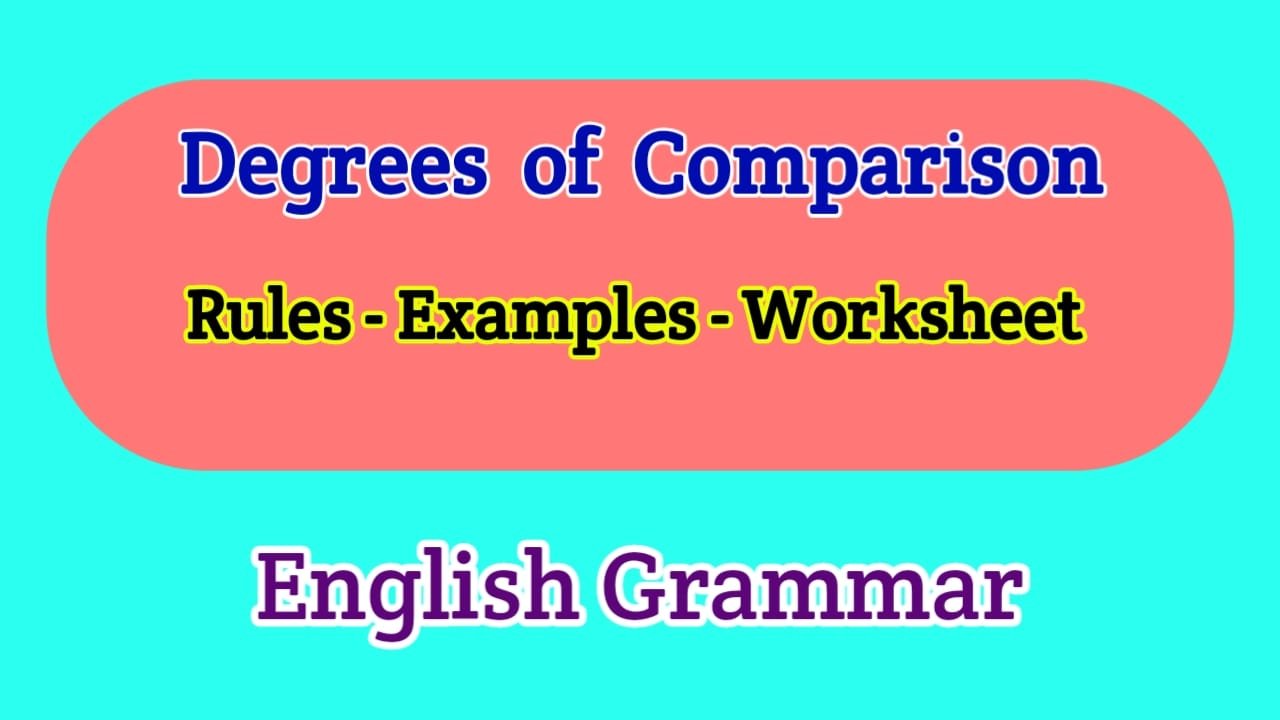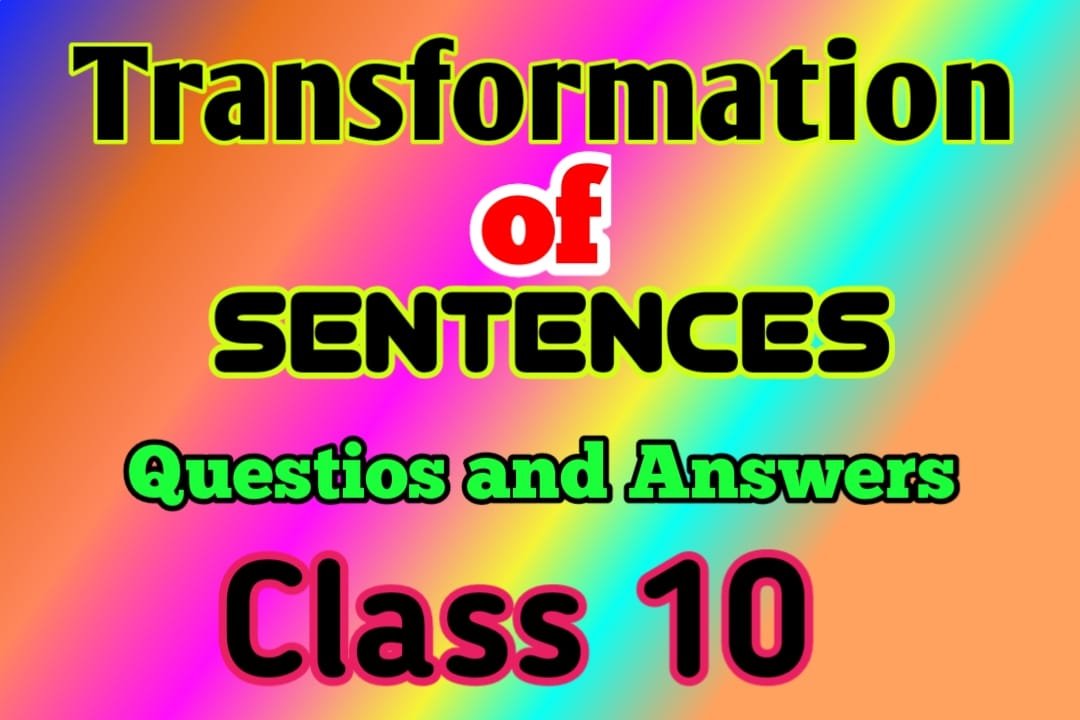Learn about the transformation of degrees of comparison in English grammar, with examples suitable for Class 6 students. Understand the positive, comparative, and superlative degrees and their application.
This article delves into the basics of positive, comparative, and superlative degrees, with examples tailored for Class 6 students.
Adjectives and Degrees
Adjectives can be used to make comparisons between two or more people or things.
For example,
April is hot. (positive degree)
May is hotter than April. (comparative degree)
June is the hottest of all months. (superlative degree)
Degrees of adjectives categorize the intensity or comparison of qualities. They include –
- Positive
- Comparative
- Superlative
English Grammar Ebook for Class 6
Understanding the Three Degrees of Comparison Class 6
In English grammar, there are three degrees of comparison: positive, comparative, and superlative.
1. Positive degree:
The positive degree is the simplest form of an adjective, denoting the quality or quantity without any comparison.
For example,
- Rohan is a tall boy.
- This garden is beautiful.
- He is an intelligent boy,
“tall,” “beautiful,” or “intelligent” are all in the positive degree.
Note: The positive degree is also used for the comparison of similarities and dissimilarities.
For example,
- He is as brave as his father.
- She is not as kind as her mother.
2. Comparative degree:
When we compare two people or things, we use the comparative degree.
It typically involves adding “-er” to the end of the adjective for one syllabic words, or using “more” before the word for more than one syllabic ones.
For example,
- Saif is taller than Rohan.
- Malathi’s garden is more beautiful than my garden.
- Pawan is more intelligent than Piyush.
“taller”, “more beautiful”, and “more intelligent” are all examples of the comparative degree.
3. Superlative degree:
We use the superlative degree to compare more than two things or people, indicating the highest degree of quality.
It often involves adding “-est” to the end of the adjective for one syllabic word or using “most” before the word for more than one syllabic one.
For example,
- Riyaz is the tallest boy in the class.
- Susan’s garden is the most beautiful garden in the colony.
- Jimmy is the most intelligent child in his family.
“tallest,” “most beautiful,” or “most intelligent” are in the superlative degree.
Changing the Degrees of Comparison Class 6
The transformation of degrees of comparison involves adjusting adjectives to express varying levels of comparison, including positive, comparative, and superlative forms.
It is essential to adhere to specific rules when transforming the degree of a sentence to ensure a smooth transition between varying degrees.
These rules are presented below in various ‘Types’, that will retain and simplify the process of transforming sentences from one degree to another.
Let’s explore some examples of how degrees of comparison are transformed in class 6 English lessons:
Type 1:
Positive: She is the smartest girl in the class.
Comparative: She is smarter than all the other girls in the class.
Superlative: No other girl in the class is as smart as she is.
Type 2:
Positive: Sita is as tall as Gita..
Comparative: Gita is not taller than Sita.
Type 3:
Positive: The performance of any other girl of the school is not as good as hers.
Positive: The performance of no other girl of the school is as good as hers.
Comparative: Her performance is better than that of any other girl of the school.
Superlative: Her performance is the best of all the performances given by the girls of the school.
Type 4:
Positive: Very few buildings in town are as tall as this one.
Comparative: This building is taller than most other buildings in town.
Superlative: This building is one of the tallest buildings in town.
Type 5:
Positive: Very few are as fast as Rana.
Comparative: Rana is faster than most other athletes.
Superlative: Rana is one of the fastest athletes.
Order of Adjectives
When several adjectives are used together, we use them in a certain order.
The usual order of adjectives is:
| 1 | 2 | 3 | 4 | 5 | 6 | 7 | 8 |
| Quantity | Value/Opinion | Size | Age | Shape | Color | Origin | Material |
| five | beautiful | big | old | round | blue | Moroccan | leather |
| twenty | amazing | huge | young | oblong | green | Chinese | wooden |
| A few | charming | tall | ten-year-old | square | purple | English | plastic |
| several | handsome | little | new | oval | red | French | glass |
For example,
- a tall fifteen-year-old girl
- a small thin American boy
- a big pink plastic bucket
- a big rectangular field
- a beautiful small doll
- a red cotton cloth
- a new sewing machine
Class 6 English Grammar Chapter-Wise Contents:
3: Nouns
5: Gender
6: Case
7: Pronouns
8: Verbs
10: Adjectives
12: Adverbs
13: The Simple Tense
17: Prepositions
18: Conjunctions
19: Articles
22: Direct and Indirect Speech
Worksheets for Transformation of Degrees of Comparison Class 6
A. Fill in the blanks by using the degree of comparison as indicated.
1. Yesterday, the weather was ……….. (bad) than today. (comparative)
2. Her voice is the ……….. (soft) of all. (superlative)
3. The sports facilities in my school are ……….. (good) than those in yours. (comparative)
4. These children were the ……….. (hungry) of all. (superlative)
5. The curriculum is very ……….. (rigid). (positive)
6. A gold ring is ……….. (precious) than a silver one. (comparative)
7. Her typing was ……….. (slow) and riddled with mistakes. (positive)
8. She was ……….. (glad) to be rid of her old washing machine. (positive)
9. I work at a pace that is ……….. (fast) than my friends’. (comparative)
10. Your class is the ……….. (noisy) of all. (superlative)
B. Change the degree of comparison in each of the following sentences without changing the meaning.
1. She is the most scared of all.
2. My slice is thicker than yours.
3. His public image is most impressive.
4. To save the match, I played the best innings.
5. Her room is the cosiest of all the rooms in the bungalow.
6. Her role in the play was more important than mine.
7. Your role is funnier than that of any other character.
8. You have the strongest influence on the management.
9. This pair of scissors is sharper than any other pair.
10. This flight of stairs is steeper than all the others in the building.
C. Change the degree of comparison of adjectives in these sentences without changing their meaning.
1. Abhay is stronger than most boys in the class. [Change into superlative degree]
2. Ashoka was one of the greatest kings of India. [Change into comparative degree]
3. Very few cities of India are as hot as Jaisalmer. [Change into superlative degree]
4. ‘Kabuliwala’ by Tagore is more interesting than most other stories. [Change into superlative degree]
5. The Taj Mahal is one of the most beautiful monuments of India. [Change into comparative degree]
6. Delhi is one of the biggest cities in the country. [Change into comparative degree]
7. He is one of the most popular singers of the college. [Change into comparative degree]
D. Fill in the blanks with the adjectives given in brackets. Use them in the correct order.
1. He is a …………… boy. (bold, young)
2. I bought a/an …………… clock. (Swiss, old, beautiful)
S. They have a …………… castle. (big, Victorian, comfortable)
4. We bought …………… chairs for the kids’ room. (plastic, pink, some, small)
5. I gave her a box of …………… cookies. (delicious, Belgian, chocolate)
6. She packed her things in a/an …………… box. (green, cardboard, old, flimsy)
7. They have …………… shepherd dogs. (beautiful, three, young, German, big)
8. I do not wish to attend the lecture of that …………… professor.(old, boring, philosophy)
9. You will need …………… bottles forthis experiment. (old, tall, empty, glass)
10. He bought a/an …………… car. (red, expensive, German, beautiful)







